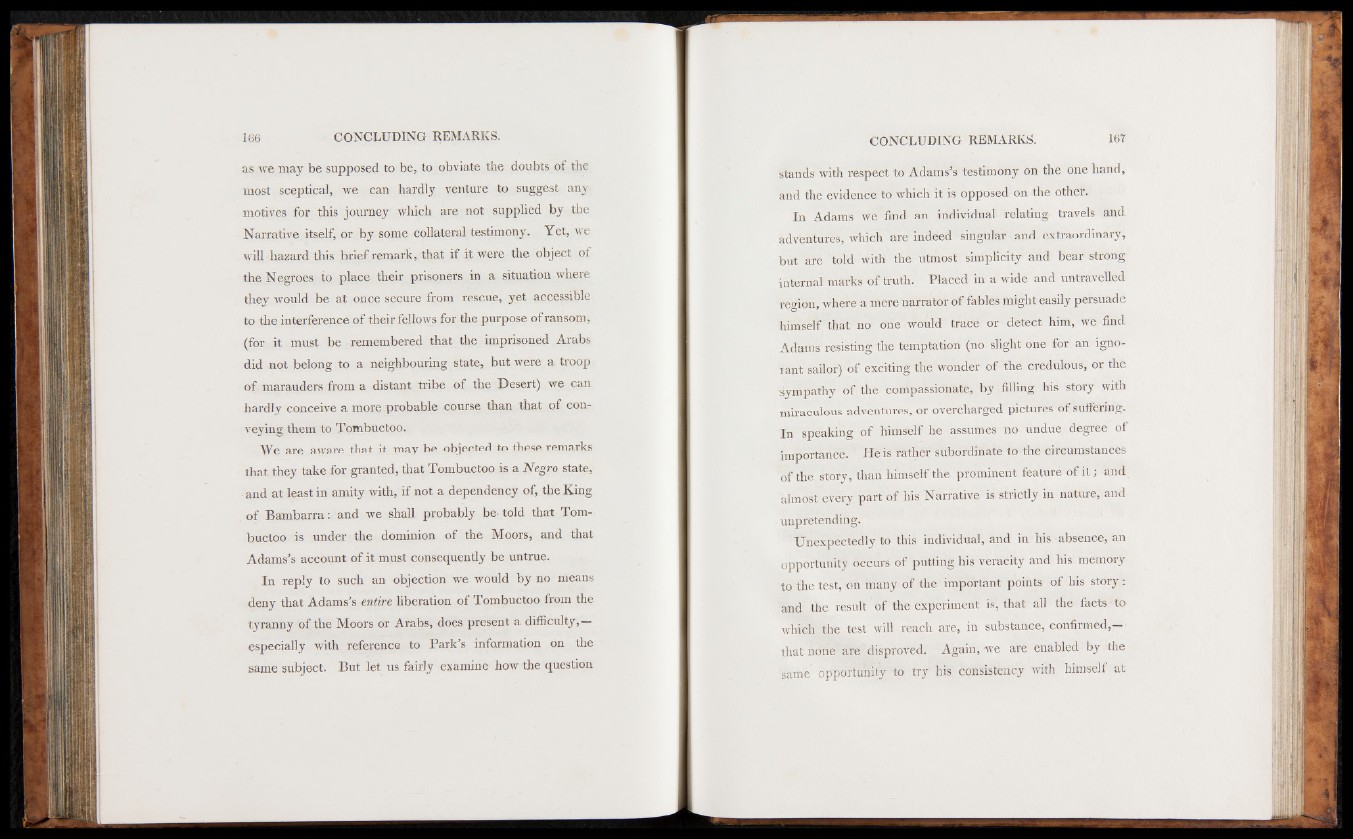
as we may be supposed to be, to obviate the doubts of the
most sceptical, we can hardly venture to suggest- any
motives for this journey which are not supplied by the
Narrative itself, or by some collateral testimony. Yet, we
will hazard this hrief remark, that if it were the object of
the Negroes to place their prisoners in a situation where
they would be at once secure from rescue, yet accessible
to the interference of their fellows for the purpose of ransom,
(for it must be remembered that the imprisoned Arabs
did not belong to a neighbouring state, but were a troop
of marauders from a distant tribe of the Desert) we can
hardly conceive a more probable course than that of conveying
them to Tombuctoo.
We are aware that it may be objected to these, remarks
that, they take for granted, that Tombuctoo is a Negro state,
and at least in amity with, if not a dependency of, the King
of Bambarra: and we shall probably be- told that Tombuctoo
is under the dominion of the Moors, and that
Adams’s account of it must consequently be untrue.
In reply to such an objection we would by no means
deny that Adams’s entire liberation of Tombuctoo from the
tyranny of the Moors or Arabs, does present a difficulty,
especially with reference to Park’s information on the
same subject. But let us fairly examine how the question
stands with respect to Adams’s testimony on the one hand,
and the evidence to which it is opposed on the other.
In Adams we find an individual relating, travels and
adventures, which are indeed singular and extraordinary,
but are told with the utmost. simplicity and bear strong
internal marks of truth. Placed in a wide and untravelled
region, where a mere narrator of fables might easily persuade
himself that no one would trace or detect him, we find
Adams resisting the temptation (no slight one for an ignorant
sailor) of exciting the wonder of the credulous, or the
-sympathy of the compassionate, by filling his story with
miraculous adventures, or overcharged pictures of suffering.
In speaking of himself he assumes no undue degree of
importance. He is rather subordinate to the circumstances
of the story, than himself the prominent feature of i t ; and
almost every part of his Narrative is strictly in nature, and
unpretending.
Unexpectedly to this individual, and in his absence, an
opportunity occurs of putting his veracity and his memory
to the test, on many of the important points of his story :
and the result of the experiment is, that all the facts to
which the test will reach are, in substance, confirmed,—
that none are disproved. Again, we are enabled by the
same opportunity to try his consistency with himself at